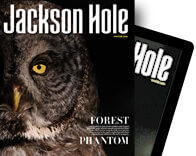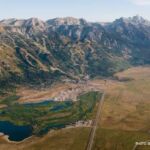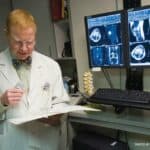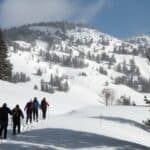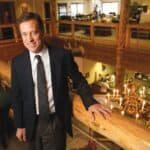Read The
Current Issue
Locals: Bob Hammond
Interview by Whitney Royster
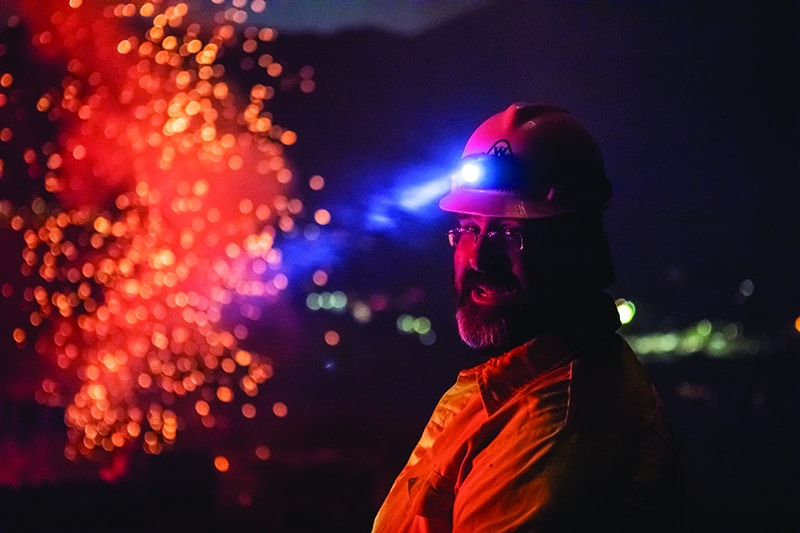
BOB HAMMOND, 50, moved to Jackson Hole in 1991 after graduating from Tufts University. “I had been here on vacation once before,” he says. While he arrived in the valley with an engineering degree, his first job was in Park Place Market (which has since morphed into Creekside Market). “My brother-in-law wanted to buy some businesses out here and run them and eventually retire, but he didn’t want to retire yet,” Hammond says. “So I volunteered to run [the market].” Hammond worked the cash register, placed orders, and made sandwiches for one year. “I think that’s pretty normal for a lot of people who come to this valley—they start with a job that’s not really their career and work into their career,” he says. In 1996, he got closer to his career when he started as an engineer at Nelson Engineering. He later took a temporary position as an engineer with the Wyoming Department of Transportation (WYDOT). “They said they’d hire me for a week’s worth of work, and that lasted three years,” he says. Hammond has now been WYDOT’s resident engineer for seven years. For twenty-six years he’s worked on Snow King’s fireworks displays, first just on the Fourth of July and, more recently, on New Year’s Eve and at the start of the annual Pedigree Stage Stop Dog Sled Race.
Q: What does a resident engineer do?
BH: The new roundabout at the Gros Ventre Junction, the truck arrestors on Teton Pass, and the new, wider highway south of town are all under my watch.
Q: What about fielding angry phone calls from people upset by these projects?
BH: I get them and do my best to explain why we did it.
Q: Are building and maintaining roads in Jackson more challenging than other places?
BH: Definitely. It is more interesting and more challenging. We have a wonderful place to live that we want to try to maintain the character of, and we also have a very active and knowledgeable group of people that live here, and we also have rapidly growing traffic counts. It’s difficult to balance all those.
Q: What’s more stressful—your work with WYDOT or being responsible for the town’s major fireworks shows?
BH: The fireworks are relaxing for me.
Q: How did you come to help with the fireworks shows?
BH: As a kid in Rhode Island, I played with fireworks. It was illegal there, but we would light off bottle rockets and Roman candles. Before that, we lived in Michigan and my dad and neighbors would launch fireworks at each other over a pond. I could throw smoke bombs. When I got [to Jackson] the Jaycees were a group of good people who also did the fireworks, so it made perfect sense for me to join.
Q: Have fireworks changed since you’ve been involved with them here?
BH: We used to hand-light our shows, then [we] went to an electric show. You still manually fire it, but you are at a distance using electricity to light the fuse. Now we’re back to a hand-fired show.
Q: So you’re back to where you started?
BH: I swear Snow King is a Bermuda Triangle of electronics, and [they] don’t work very well up there. Also insurance required that the shell size [of the fireworks used] had to be reduced.
Q: How big are the smaller shells?
BH: Six inches, typically.
Q: And the big ones?
BH: Up to 12 inches.
Q: Do you light each fuse and then run away?
BH: You don’t get to run away. You need to light the next one a couple seconds after the first one goes off.
Q: How’s your hearing?
BH: What? I wear earplugs.
Q: What happened to your brother-in-law’s plans to retire off Park Place Market?
BH: He changed his plans, and nothing really came of [the market].
